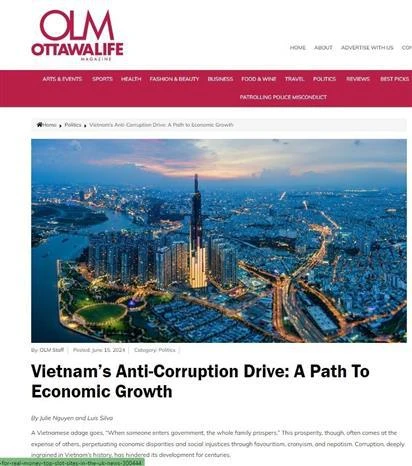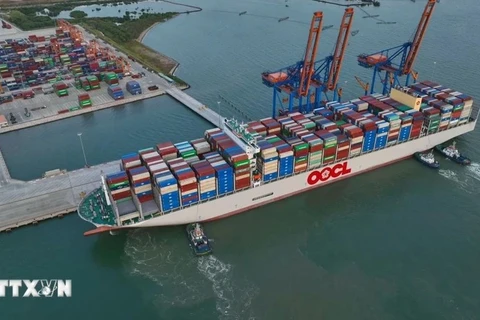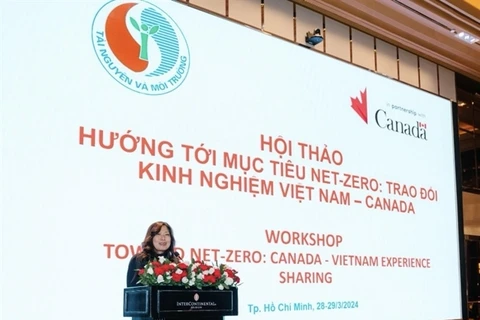
Ottawa (VNA) – Vietnam’s anti-corruption efforts have helped spur its economic growth, Director of the Canada-Vietnam Trade Council Julie Nguyen and Professor of Business at Centennial College in Toronto Luis Silva shared the view.
In their recent article on Canada’s Ottawa Life magazine, the experts said in recent years, Vietnam’s battle against corruption has been intensified, marked by high-profile cases hitting the headlines. Those cases demonstrated the Government’s commitment to transparency and accountability.
Vietnam’s standing on the Transparency International’s Corruption Perceptions Index (CPI) jumped by 10 points between 2013 and 2023, ranking 83rd out of 180 countries in 2023.
The article said under the leadership of Party General Secretary Nguyen Phu Trong, Vietnam has taken significant strides in its anti-corruption efforts since 2016.
The anti-corruption campaign has seen the dismissal of numerous senior officials, signalling a commitment to root out the phenomenon at all levels.
Business corruption, particularly in industries like real estate, banking, and health care, has also been targeted. Notably, Truong My Lan, head of a major real estate company, was sentenced to death for involvement in a 12.5 billion USD financial fraud case.
While these anti-corruption measures may have disrupted some projects and supply chains, they’ve contributed to an improved business environment, as reflected in Transparency International’s assessments.
"Over the years, Vietnam has become an attractive destination for foreign investors due to decreased corruption, improved business climate, and enhanced transparency," the experts said.
According to the article, Vietnam presents promising investment opportunities. The country's stable political environment, strategic location, and growing economy appeal to institutional investors.
Although investors have to navigate infrastructural inadequacies, regulatory complexities, and corruption risks. Vietnam’s ongoing reforms and investment-friendly policies instil optimism among them.
It said Canadian stakeholders stand to benefit from engaging with Vietnam. Bilateral trade between Canada and Vietnam has soared, surpassing 10 billion USD in 2023.
As members of the Comprehensive and Progressive Agreement for Trans-Pacific Partnership (CPTPP), the two countries are poised to deepen economic ties further. Canadian businesses are advised to capitalise on Vietnam’s growth trajectory and its strategic position in Canada’s Indo-Pacific Strategy.
Amid geopolitical shifts, Vietnam remains steadfast in its foreign policy, balancing relations with major powers and strengthening ties with other ASEAN members. For Canada, deepening engagement with Vietnam aligns with its Indo-Pacific Strategy and offers opportunities for economic cooperation and regional influence, the article said./.






















